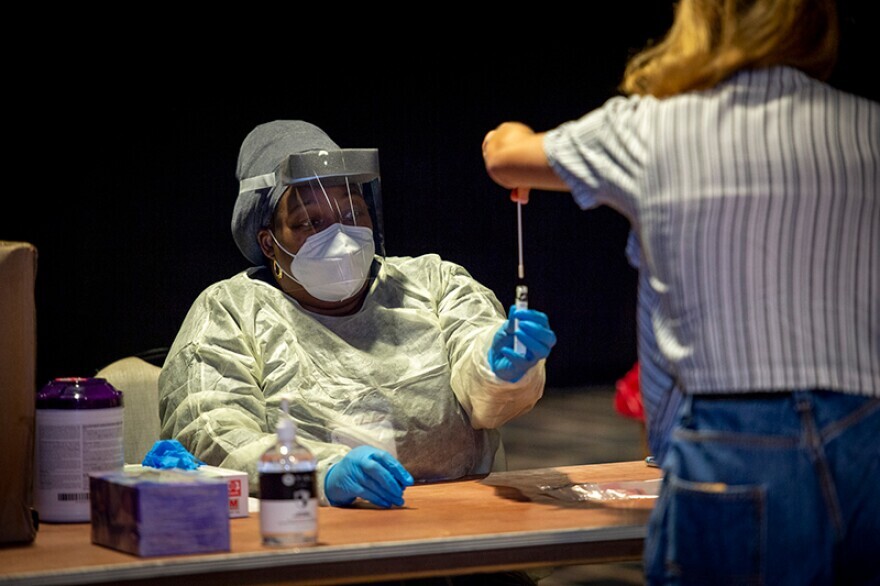The COVID-19 omicron variant has not yet been detected in Louisiana, but the state health department is genetically sequencing most positive COVID-19 PCR tests to find out which variants are circulating in the state, officials said at a press conference Friday.
“We haven’t yet detected it in Louisiana,” Edwards said. “But that certainly doesn’t mean it isn’t here … I want to be clear that if we do, then we will make sure that the people of Louisiana know as much about that as possible.”
Gov. John Bel Edwards said that almost 100% of Louisiana’s current COVID-19 cases can be attributed to the delta variant.
Omicron has cropped up in five U.S. states so far: California, Minnesota, Colorado, Hawaii and New York.
Edwards said that the best method residents have to protect themselves from any coronavirus variant is to get vaccinated against COVID-19 and get a booster shot as soon as they’re eligible. About 49% of the state’s population is fully vaccinated.
State Health Officer Dr. Joseph Kanter said that omicron is noteworthy for its “high number of mutations” in the virus’ spike protein structures. An early report from South African scientists shows that the omicron variant may be more able to reinfect those who previously recovered from COVID-19 at a rate three times better than the delta variant, but the study has yet to be peer-reviewed.
Kanter reiterated that scientists don’t yet know enough about the omicron variant to make any definitive statements about its potential impact in Louisiana.
The CDC estimates that 40% of Louisianans have been exposed to COVID-19 since the beginning of the pandemic, Kanter said, and those individuals are at lower risk of severe illness or death than unvaccinated individuals who have not been previously infected.
Kanter said residents can think of omicron “as a storm that is way, way out in the Gulf... you don’t know exactly where it’s gonna go, you don’t know how strong it’s going to be when it gets there, but you’re paying attention, and you’re probably preparing.”
For the last six weeks, about 2,000 Louisianans have begun new vaccine series per day, Kanter said.
He also addressed LDH’s proposed addition of COVID-19 vaccines to the state’s school immunization schedule, saying that while nobody has to get vaccinated against their will, families should consider that COVID-19 can affect children seriously. He noted that three children are currently hospitalized due to COVID-19.
Under the proposed immunization schedule, only students 16 years and older would have to be vaccinated since the FDA has not yet fully approved any COVID-19 vaccine for use in patients ages 15 and younger. Vaccines are available for those ages 5 to 15 years old under emergency-use authorization.
Students would have to be vaccinated by the beginning of next school year, August 2022.
Dr. Miranda Mitchell recounted the feelings of frustration and fear she experienced while trying to care for hospitalized COVID-19 patients during the summer’s delta variant surge. Mitchell said hospitals were pushed “to the brink” during the surge, running out of hospital beds and lacking the staff needed to care for so many patients.
She urged residents to get vaccinated to help the state avoid yet another surge.
Edwards said that not a day has gone by without at least one COVID-19 death in the state since March 13, 2020.
Seven parishes had high rates of community coronavirus spread, and 213 people were hospitalized due to COVID-19 Friday, according to the Louisiana Department of Health. About 2.3% of COVID-19 tests came back positive statewide between Nov. 18 and Nov. 24, the week of the Thanksgiving holiday, up 0.6% from the week prior.
The state has gained 300 to 400 cases per day on average so far in November. That’s down from a peak of nearly 5,500 average cases per day this August.




